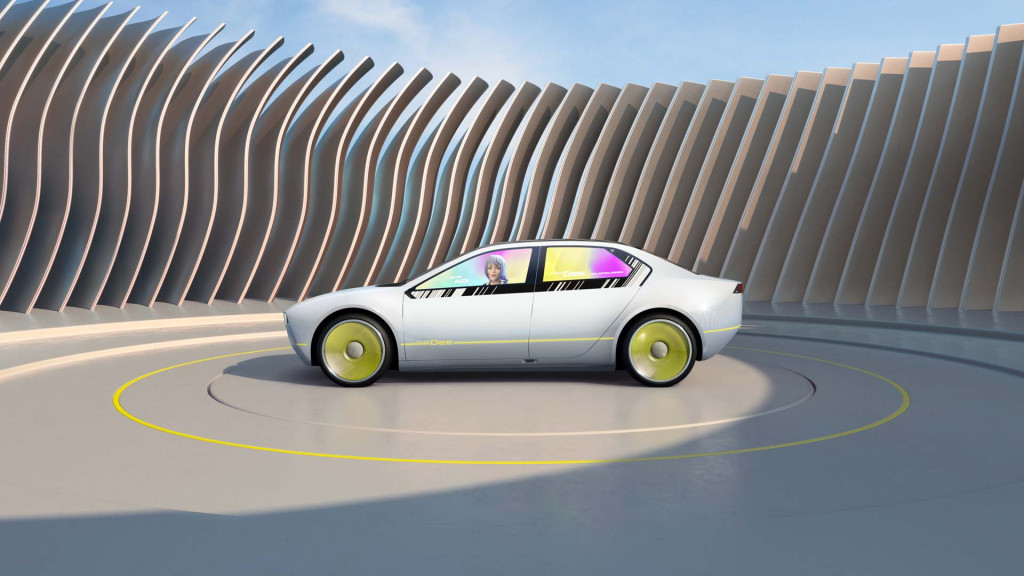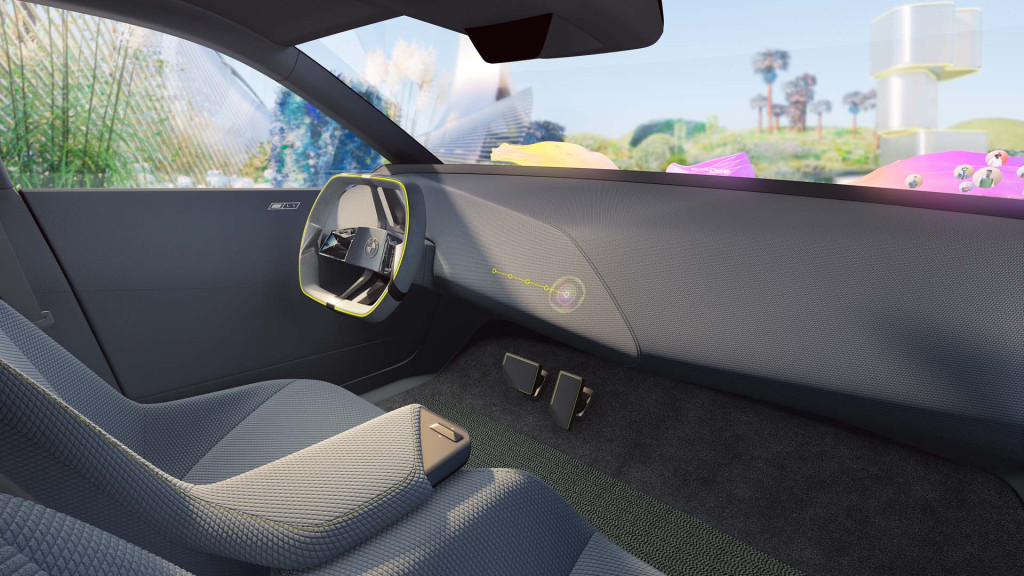BMW is developing a new family of EVs dubbed “Neue Klasse,” German for “New Class,” and provided a glimpse of the design direction of those cars with the BMW i Vision Dee concept.
Unveiled at CES in Las Vegas, the i Vision Dee is a compact sedan with what BMW calls a “reductive design” that seems to us to be a throwback to the E30 3-Series. Like that classic, this concept has a traditional three-box profile with a long hood, upright cabin, and distinct trunk lid section.
While the design might be simplified—to a degree that purges all dash displays—some of the tech doesn’t sound that way. The Dee in this concept’s name stands for “Digital Emotional Experience,” highlighting the many digital features BMW feels will be an important part of future cars.

BMW i Vision Dee concept
BMW says the i Vision Dee can have almost human qualities, including expressing “moods such as joy, astonishment or approval” by using its headlights and lighting elements in the grille to simulate facial expressions, according to a press release. The car can also display a personalized welcome message when a driver approaches it.
The interior is largely bare except for basic controls and a head-up display spanning the width of the dashboard. Using a slide controller, drivers can choose from five levels of information, ranging from basic driving-related information to a full augmented-reality display with virtual elements.
The Neue Klasse vehicles are scheduled to start production in 2025, marking a major shift for BMW in multiple ways. They will usher in cylindrical cell to pack tech as a replacement for the prismatic cells used in current BMW EVs, with anticipated faster charging and a range improvement.

BMW i Vision Dee concept
Neue Klasse models are also due to be based on an EV-specific platform, splitting away from internal-combustion models. Current BMW EVs like the i4 and i7 share platforms with internal-combustion vehicles.
BMW has hinted that the Neue Klasse platform could accommodate hydrogen fuel-cell powertrains as well. CEO Oliver Zipse also previously declared that EVs based on dedicated platforms tend to look alike, and that BMW would try to avoid this design rut. Judging by this concept, it appears to have checked that box.







